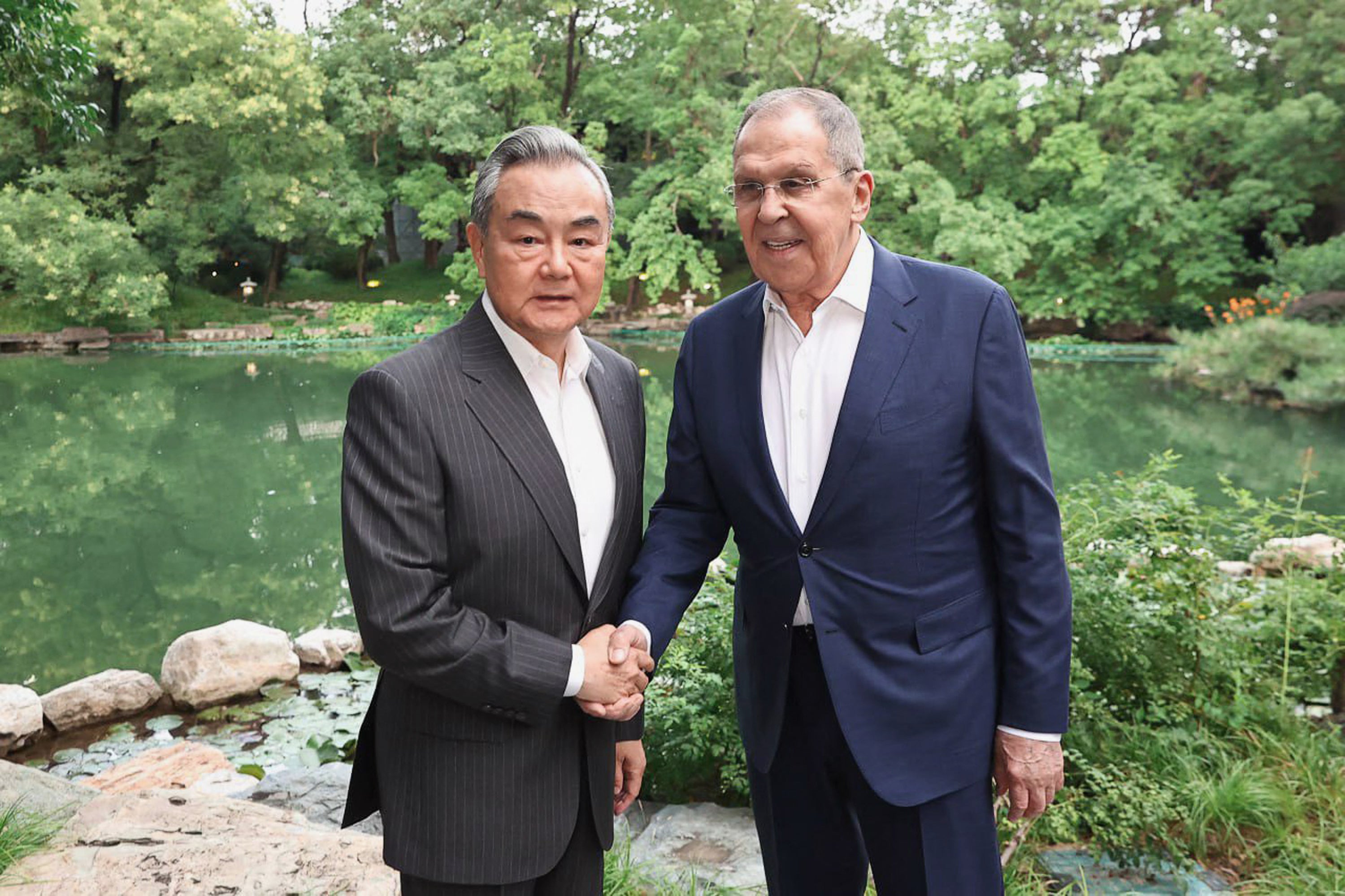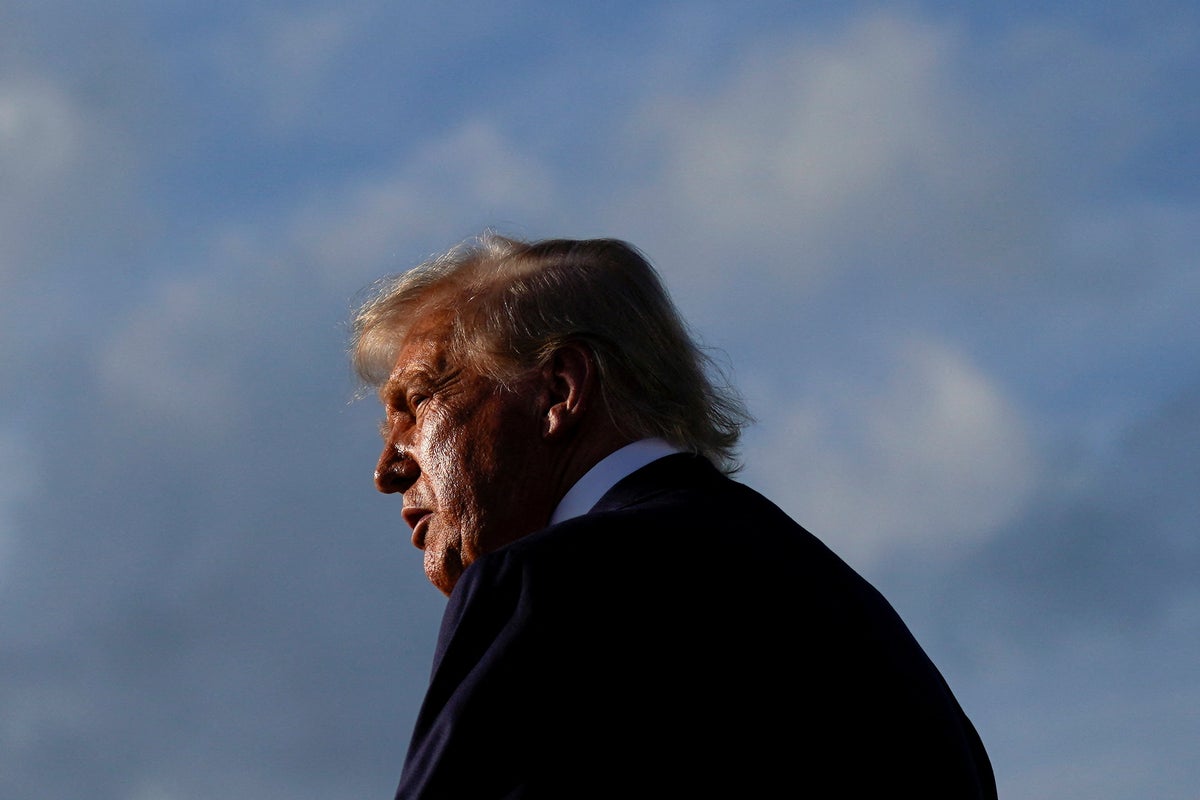New sanctions that Donald Trump has threatened to impose on Russia if Moscow does not agree to a Ukraine peace deal within 50 days would be “extremely painful” for the US itself, industry experts have warned.
In a renewed attempt to force Vladimir Putin to accept an elusive peace deal with Ukraine, the US president on Monday threatened to impose so-called “secondary tariffs” of 100 per cent on countries which continue to do trade with Russia.
This would mean countries such as India, China and Turkey would face heavy tariffs with Washington as a result of buying Russian oil. The move would seek to remove Russian oil – one of the most crucial sources of income for Moscow’s wartime economy – from global markets.
“It would definitely hit Russia. It would destroy Russian oil trade, but would be extremely painful for the United States also,” said Alexander Kolyandr, Russian economy expert and senior fellow at the Center for European Policy Analysis.

But Mr Kolyandr doubts Mr Trump will follow through with the tariffs in their proposed form. If such sanctions were imposed, he said, they would be “pretty painful for oil prices” worldwide and would impact European countries, including the United Kingdom, as well.
“Russia accounts for 5 million barrels a day of oil export, and there is nowhere to get those 5 million fast enough to prevent a spike in oil prices,” he explained.
Increasing oil prices would subsequently cause inflation to be pushed up, he added.
Despite cutting financial ties with Russia, Western countries have so far avoided steps preventing Russia from selling oil elsewhere due to these risks – meaning Moscow has continued to earn hundreds of billions of dollars by shipping oil to other buyers.
India and China, the two largest growing economies in Asia, have only expressed general concerns about the loss of life in the Ukraine war while continuing to ramp up their trade with Russia.
New Delhi in particular has profited from the conflict by buying vast amounts of cheap Russian oil. From meeting less than 2 per cent of India’s oil needs before the war, Russia has become the country’s largest supplier of seaborne crude. The cheap availability of Russian oil since the invasion has led India to gradually reduce its reliance on its traditional top suppliers – Iraq and Saudi Arabia.
Narendra Taneja, an energy expert based in India, said Mr Trump’s unilateral sanctions would not only hurt the likes of India, China and Brazil but upend the global oil market, calling it a “high-stakes gamble”.
“Oil prices will go up for everyone – including the US and Western Europe,” he told The Independent. “If that happens, it would be bad news for the world economy, including Nato members and other countries. If the agenda is to punish one country, it ends up punishing the entire world.”
Given the damage to the American and global economies, Mr Kolyandr does not believe it likely that Mr Trump will impose the tariffs in the form which he has threatened.
“The United States is quite reluctant to forfeit all its trade with China. It also needs India as a potential ally against China, and Turkey is a Nato member and one of America’s allies in the Near East, so I don’t see how that might be possible [for Trump to impose the tariffs].”

But, he said, the main danger for Moscow is the “unpredictability” of the US president, who during his first six months in power has been erratic in his attitude towards both Kyiv and Moscow.
“Moscow business should be worried, simply because nobody understands what might happen after 50 days,” he said.
Mr Trump announced the tariffs while speaking in the Oval Office on Monday during a meeting with Nato secretary-general Mark Rutte, declaring he was “very unhappy” with Russia and its president Vladimir Putin, and pledged to impose what he described as “very severe tariffs” on Moscow.
The US president’s hardened stance against Moscow came along with a softening of his relationship with Kyiv, as he committed a new batch of offensive and defensive weapons to support its defence against Russian aggression. On Tuesday, he said that the first Patriot air defence systems – which are being paid for by Kyiv’s European allies – were already on their way to Ukraine.
Vaibhav Raghunanda, an analyst at the Centre for Research on Energy and Clean Air (CREA), suggested that if Mr Trump really wanted to help Kyiv and diminish Vladimir Putin’s war chest he should crack down on loopholes in the US’s existing sanctions regime.
CREA estimates that potentially hundreds of millions of American dollars are still reaching Russia in the form of crude oil exports because the US allows third countries to import Russian crude, refine it, and then export those products to America.
“Bans and sanctions on refineries using Russian crude will not just disincentivise this trade but also lead to a severe drop off in the price of Russian crude itself. By the US closing the refining loophole and banning the importation of oil products from refineries running on Russian crude, the US could cut off $750m in Kremlin tax revenues,” he told The Independent.


